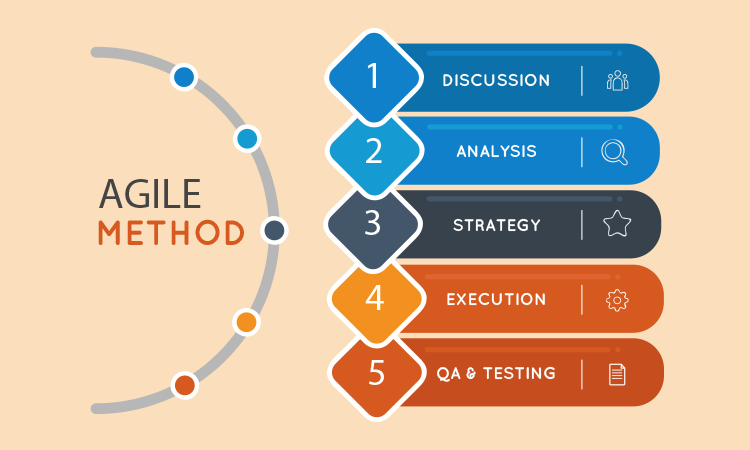What Is Agile? | Origins of Agile Methodology:
In the realm of project management and software development, Agile methodology has gained immense popularity for its adaptive and iterative approach. But precisely, what is Agile, and how does it redefine the way teams collaborate and deliver projects?
Understanding Agile Methodology
Agile methodology is a collaborative and iterative approach to managing projects and developing software. At its core, Agile prioritizes flexibility, adaptability, and customer collaboration. Unlike traditional methods, Agile is responsive to change and focuses on delivering incremental value.
Key Principles of Agile Methodology
The essence of Agile lies in several guiding principles:
Customer-Centric Approach: Agile revolves around satisfying customer needs by delivering valuable solutions consistently.
Iterative Development: Agile divides projects into smaller iterations, allowing continuous improvement and adaptation.
Cross-Functional Collaboration: Agile encourages close collaboration among diverse team members, fostering communication and shared ownership.
Embracing Change: Agile welcomes changing requirements, considering them opportunities for improvement rather than obstacles.
Continuous Feedback: Regular feedback loops facilitate ongoing refinement and improvement in Agile projects.
Implementing Agile Methodologies
Agile comprises various frameworks like Scrum, Kanban, and Lean, each offering unique approaches to managing projects and workflows. For instance, Scrum utilizes time-boxed iterations known as sprints, while Kanban visualizes work on a board to manage flow.
Successful implementation of Agile methodologies involves:
Cultural Shift: Adopting Agile principles requires a cultural transformation promoting collaboration, transparency, and adaptability.
Training and Support: Teams need adequate training and support to effectively apply Agile practices.
Leadership Buy-In: Support from management is crucial to overcoming hurdles and ensuring successful Agile adoption.
Benefits and Challenges of Agile
The Agile approach brings forth several advantages, such as:
Enhanced Flexibility: Agile allows teams to respond swiftly to changing requirements or market dynamics.
Improved Quality: Continuous feedback and testing in Agile lead to higher-quality deliverables.
Faster Delivery: Agile's incremental approach accelerates product delivery.
However, challenges might include:
Cultural Resistance: Some organizations face challenges in embracing Agile's cultural shift.
Resource Management: Efficient resource allocation within an iterative process can pose difficulties.
In summary, understanding "What Is Agile" methodology is pivotal for leveraging its potential in project management and software development. By embracing Agile's principles of adaptability, collaboration, and continuous improvement, organizations can navigate complexities and deliver value in today's dynamic business environment.
The versatility of Agile methodologies, be it Scrum, Kanban, or other frameworks, lies in their adaptability to diverse organizational needs. Embracing Agile fosters a culture of innovation and agility, positioning businesses to thrive in an ever-evolving marketplace.

Comments
Post a Comment